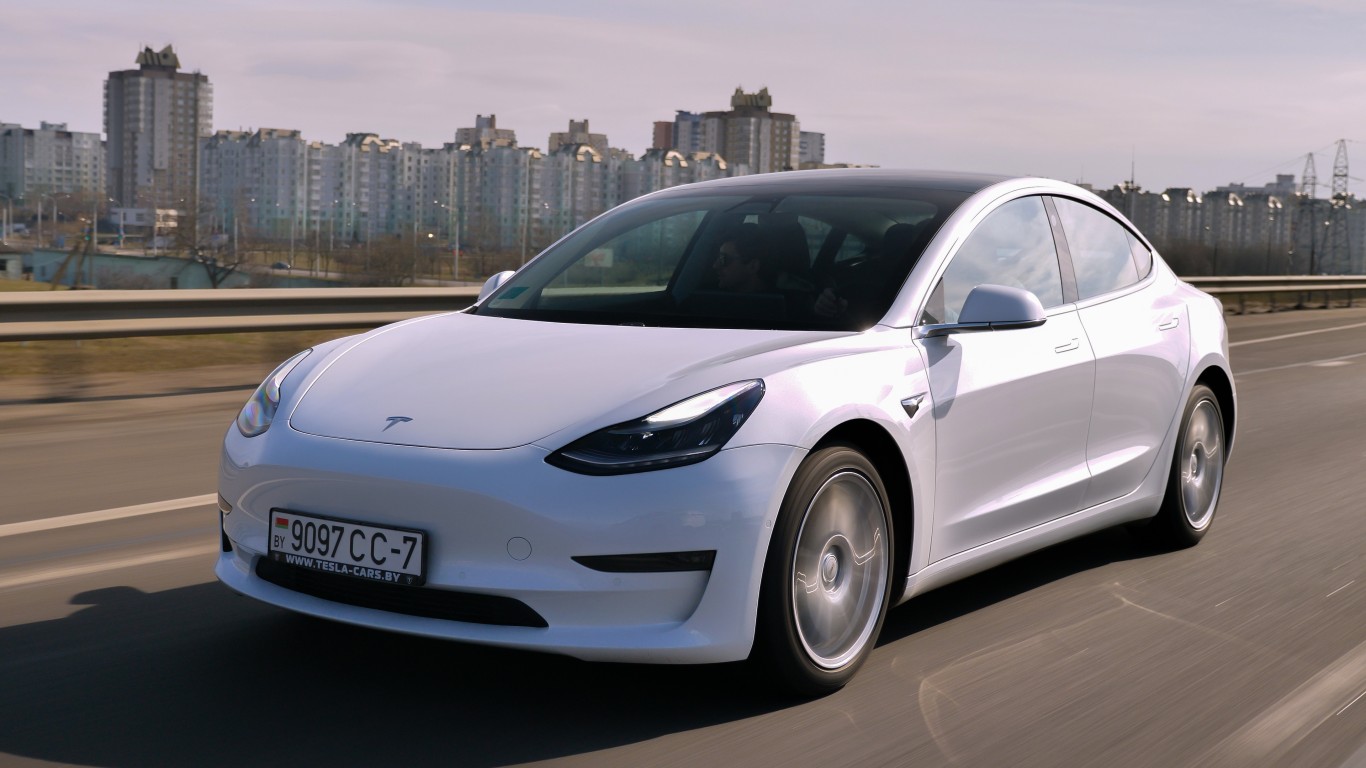
While there is no question there is hope that electric vehicles will be the next big thing, adoption has been slower than originally intended. With brands like Volvo, Volkswagen, and even Toyota making strong commitments to electric vehicle lineups in the next 10 years, many eyes are watching to see whether the electric vehicle market is here to stay or go lights out.
It won’t come as a surprise to learn that Tesla is understandably the holder of the biggest market share in the EV world. However, what is more surprising is who the next biggest brand is, as it probably isn’t one you are thinking of. With this in mind, we can take data from CoPilot Search, look at the 2023 U.S. EV market share by brand, and rank them in descending order.
Why Does This Matter?
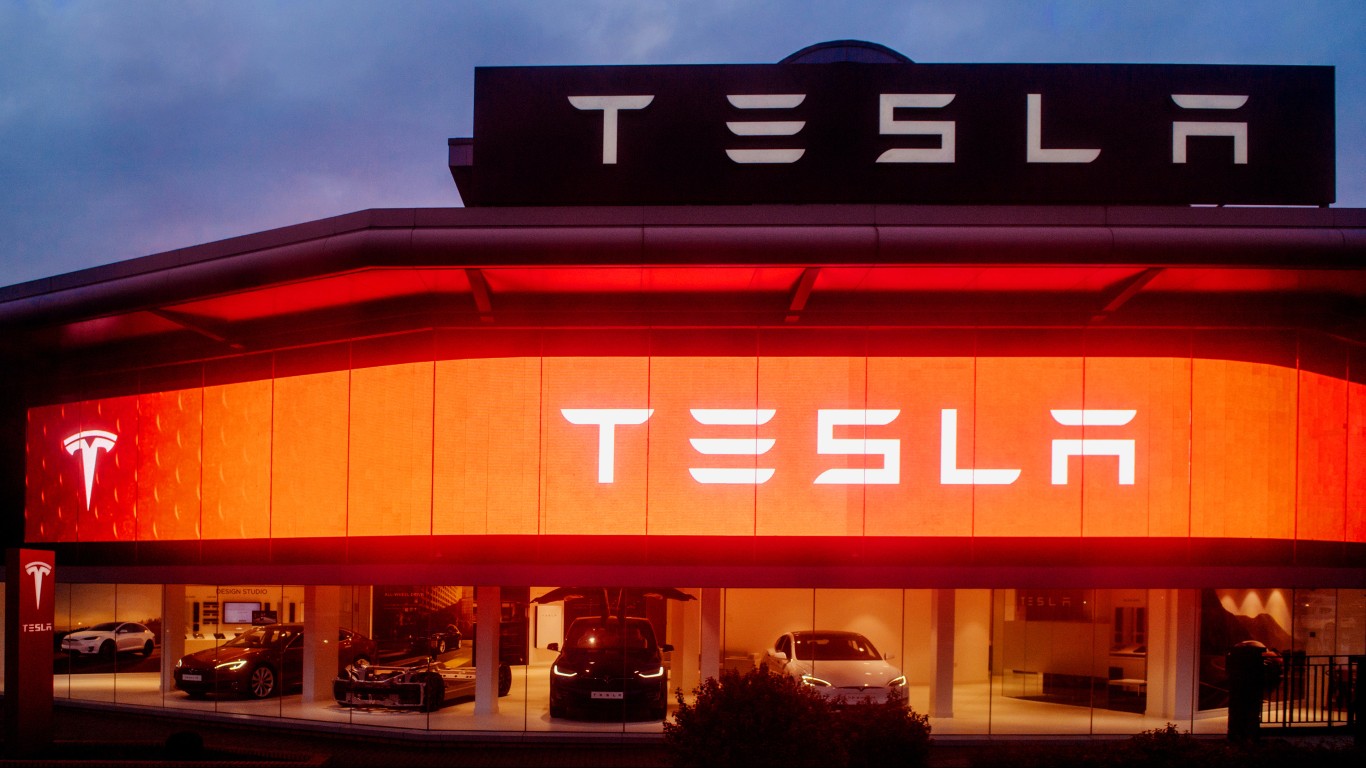
As the adoption of electric vehicles has been the subject of heavy conversation by every major automobile manufacturer on Earth, it’s a hugely important topic. Volvo, for example, has committed to being completely electric by 2024. More importantly, all of the brands covered on this list of EV market share are all names regularly covered on 24/7 Wall St, which makes this topic a perfect match for our website.
8. Mercedes
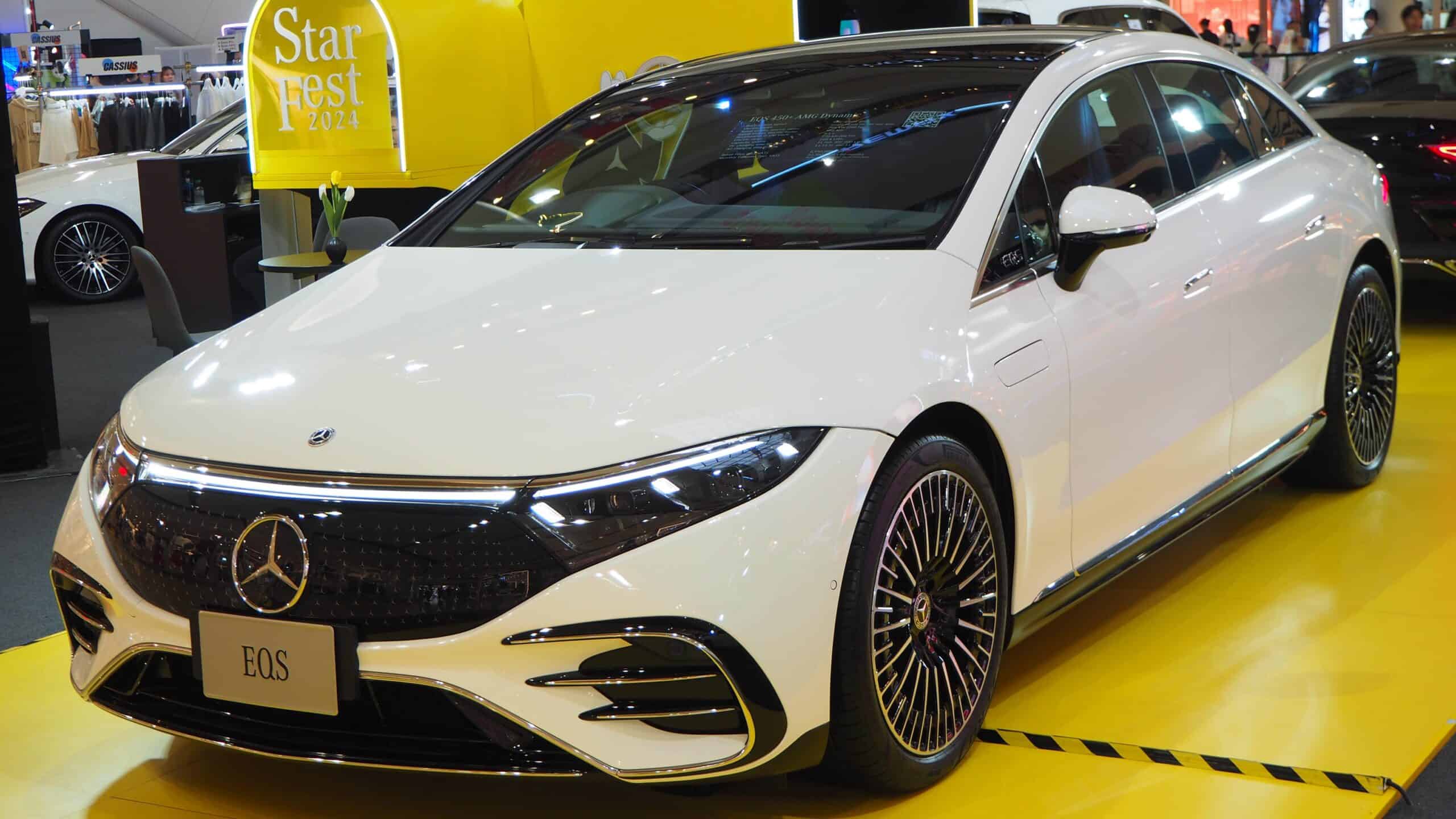
- 2023 sales: 43,202
- Popular models: EQB, EQE SUV, EQS SUV
- Market share: 3.4%
Mercedes Quality
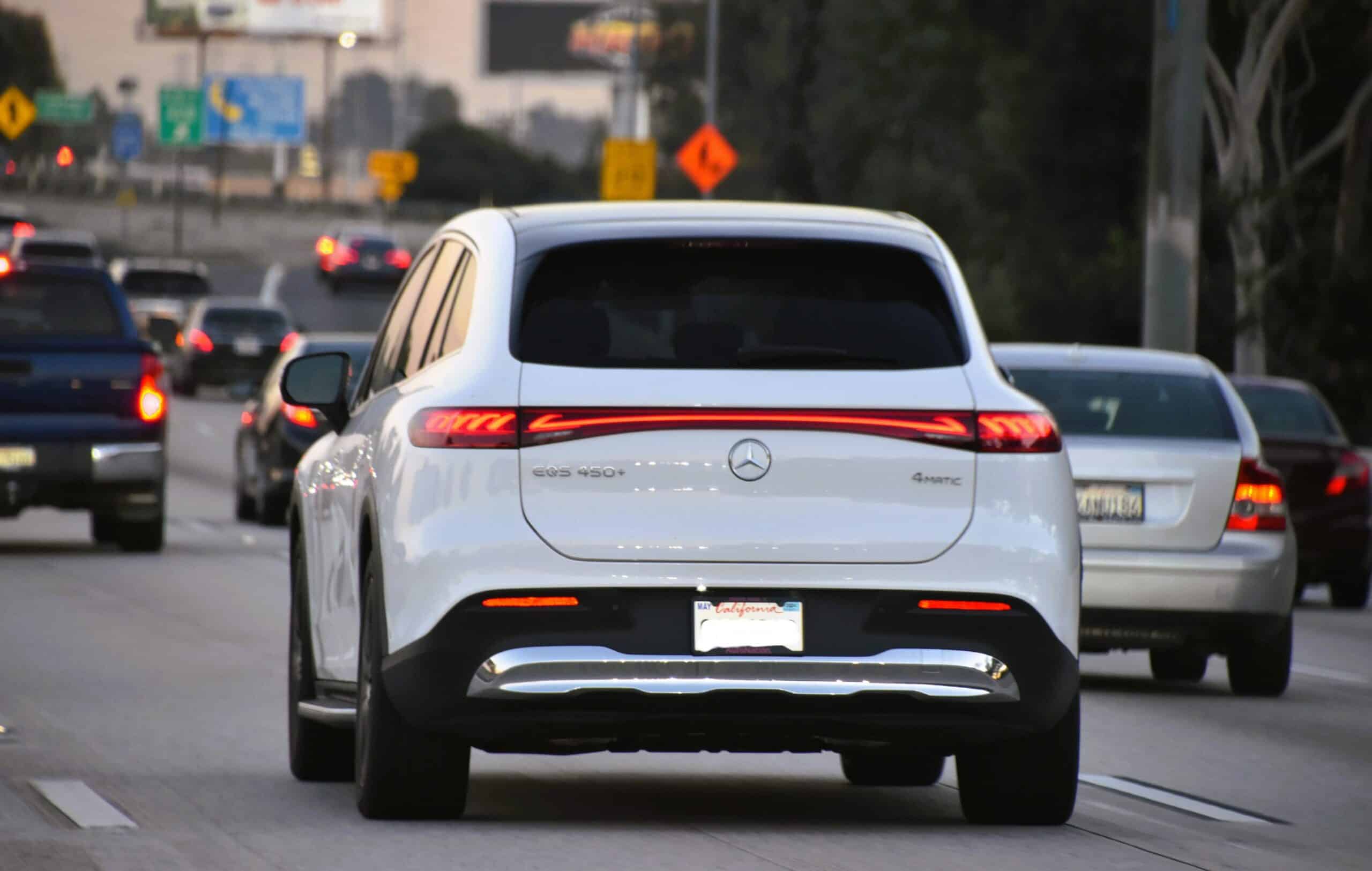
The lowest-named brand on the CoPilot list, Mercedes has some work to do to create a bigger market share for itself in the EV market. While the EQB, EQE SUV, and EQS SUV remain popular, Mercedes’ EV sales still fall well behind its gas sales. None of this says that the brand’s electric vehicles don’t meet or exceed typical Mercedes’s quality. Still, the cars simply aren’t dragging customers out of Tesla or Rivian showrooms, both brands of which have vehicles similarly priced to Mercedes’ most popular EV models.
7. BMW
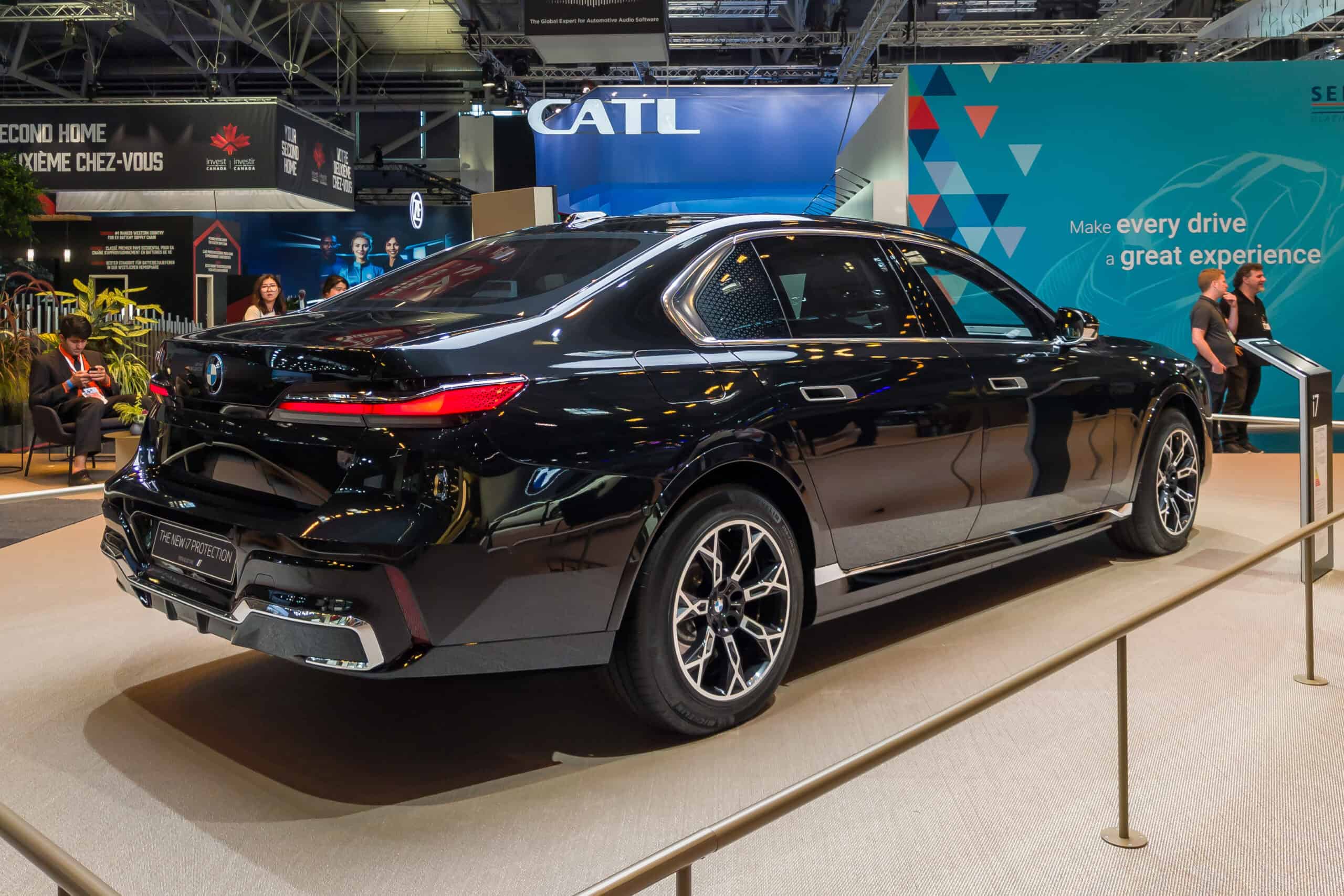
- 2023 sales: 45,417
- Popular models: i5, i4, i7, iX
- Market share: 3.6%
BMW Luxury
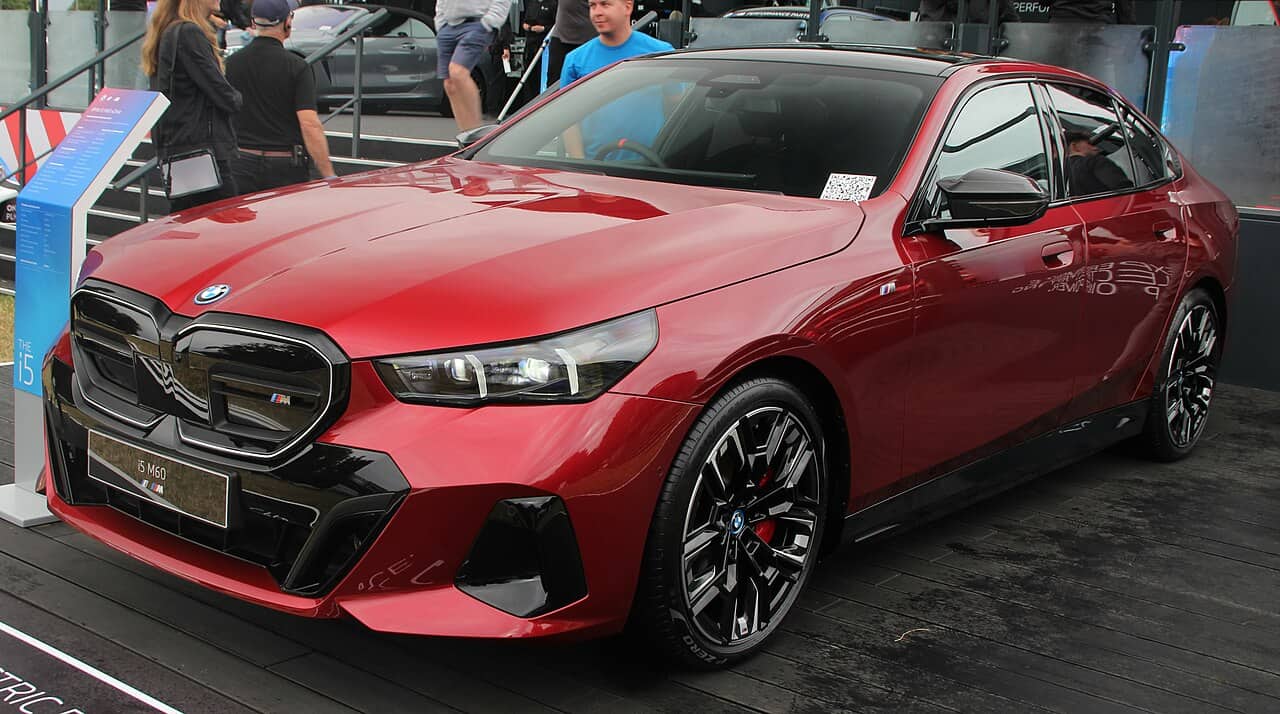
There is no question that BMW is an interesting story in the EV world. As with its ICE cars, the BMW price tag demands a certain type of customer. While the iX, i5, and i4 remain the most popular models for BMW, it will need to increase sales if it hopes to grow its market share. Where things get interesting is that the BMW group, which includes the Mini and Rolls-Royce brands, expects to sell over 500,000 EVs worldwide by the end of 2024. This is a tall order and would require significant sales in the US to hit that goal.
6. Rivian
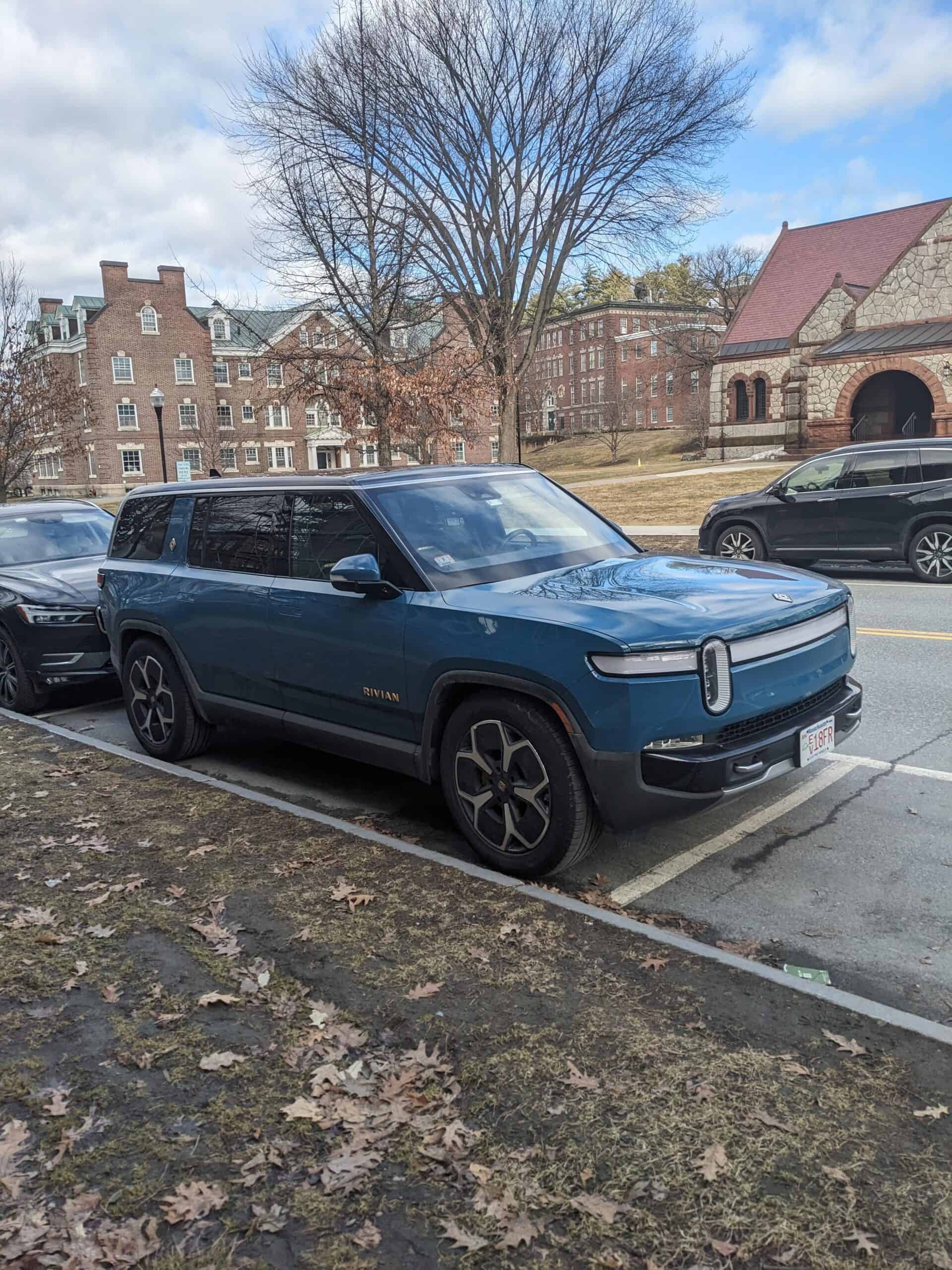
- 2023 sales: 46,416
- Popular models: R1S, R1T
- Market share: 4.2%
Rivian Is Ready
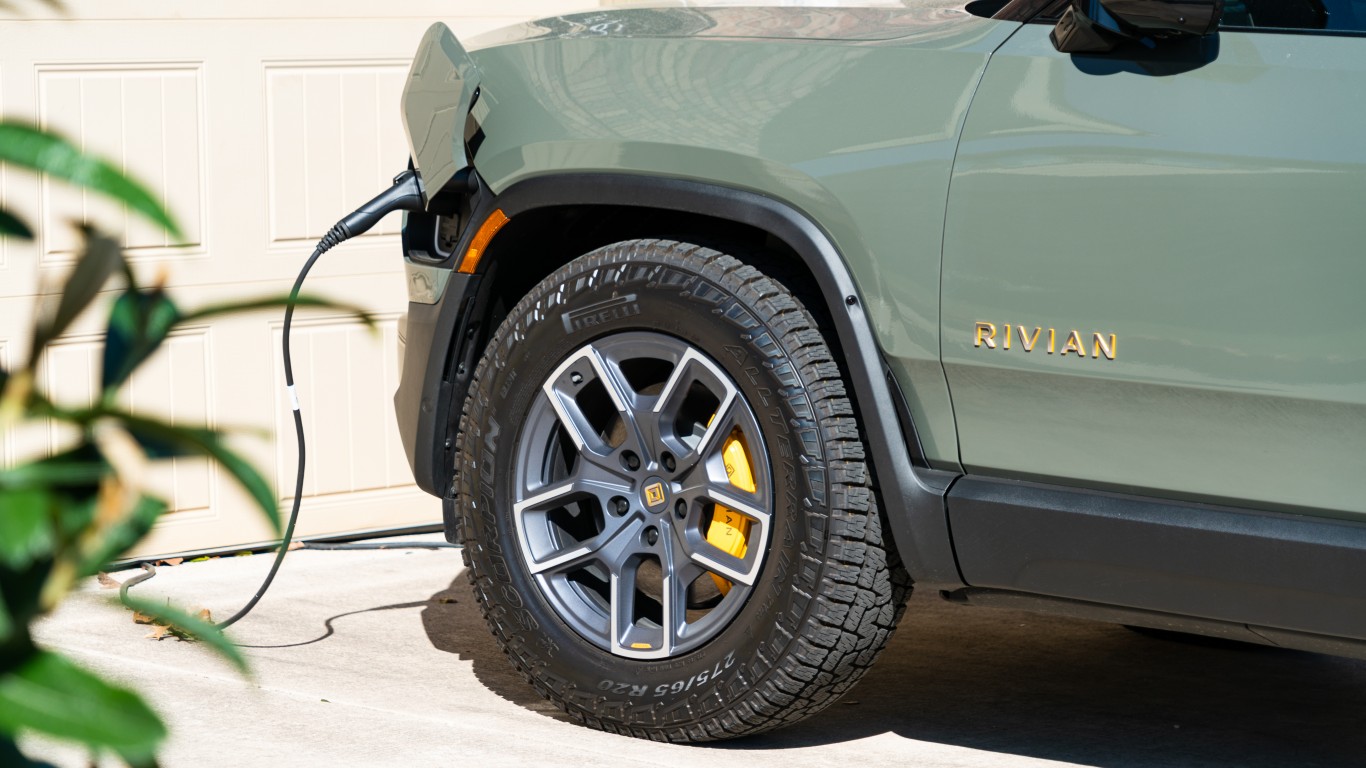
While Hyundai and Ford are certainly big rivals in the EV market, Rivian may pose the biggest threat to Tesla. The second-largest EV-only brand, Rivian’s R1S and R1T are popular. Still, the upcoming R2 and R3 may help Rivian scale its market share by offering a lower barrier to entry. On the other hand, Rivian has already established a loyal fanbase by creating a vehicle with every bell and whistle, and it is as fun, if not more fun, to drive than a Tesla.
5. Hyundai
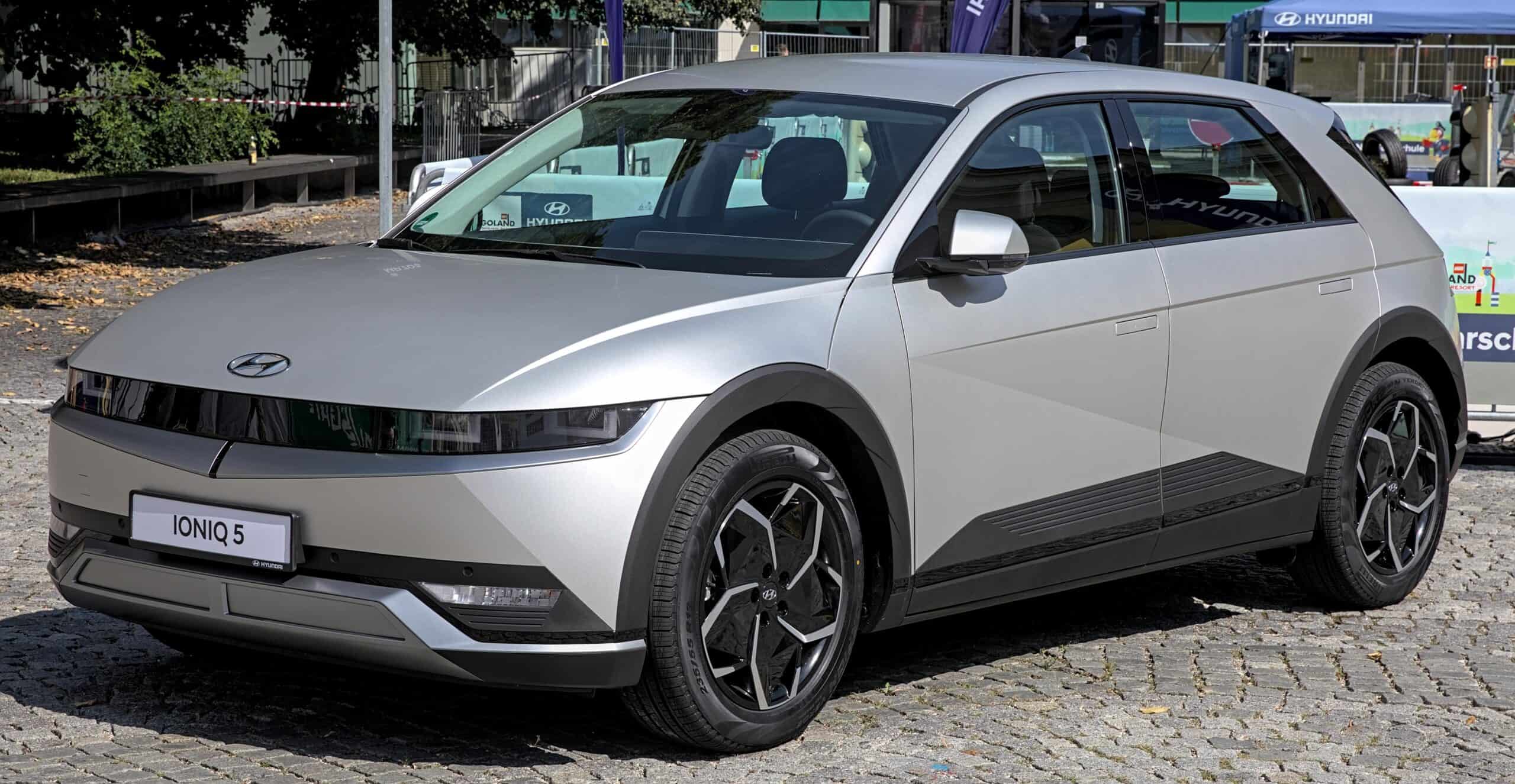
- 2023 sales: 47,000
- Popular models: Ioniq 5, Ioniq 6
- Market share: 4.7%
All About Ioniq
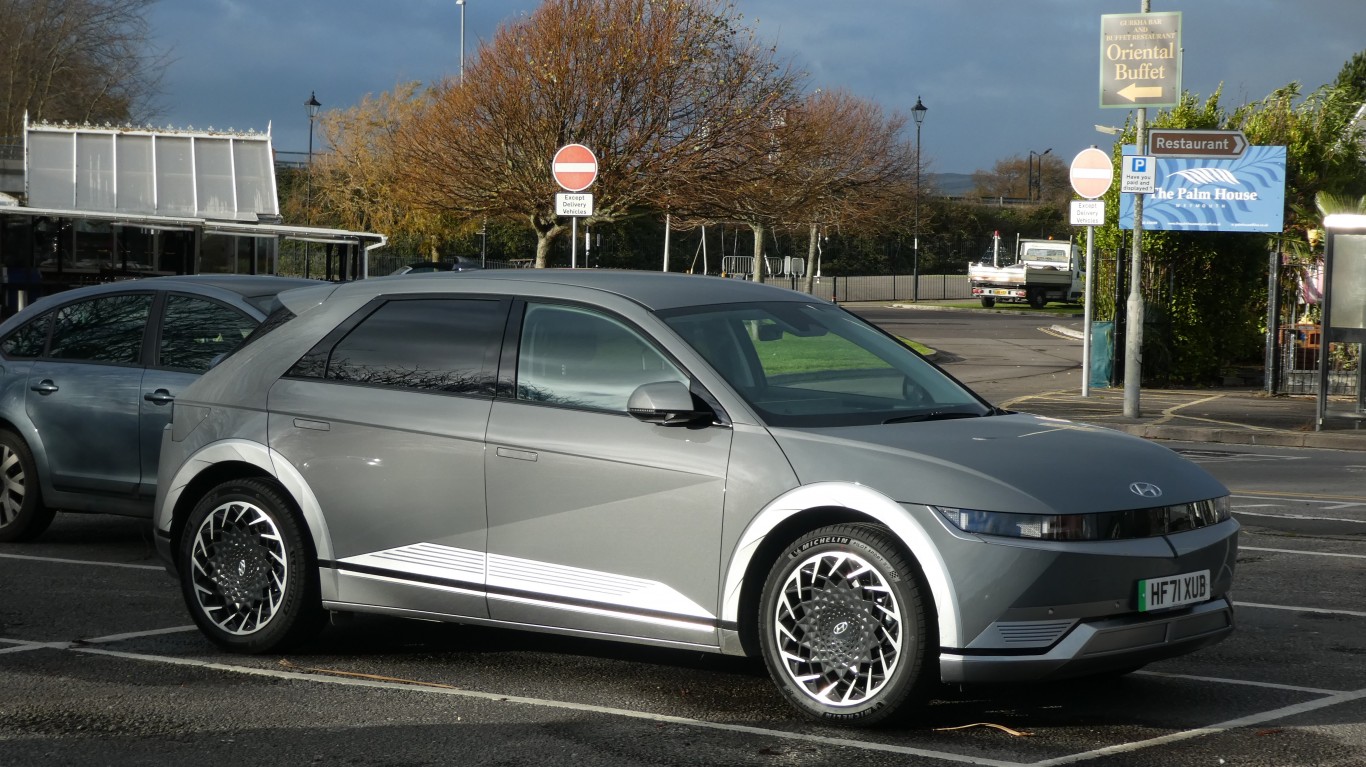
Behind the strength of the Ioniq 5 and Ioniq 6, Hyundai sold a respectable 47,000 EV models in 2023. With Hyundai already reporting EV sales up 42% this year in response to the Ioniq 5’s best sales month ever in May 2024, it may be Hyundai that leapfrogs both Ford and Chevrolet into second place behind Tesla. With its outstanding warranty carrying over to its electric vehicles and some of the best infotainment systems in the EV market, Hyundai is doing everything right.
4. Ford
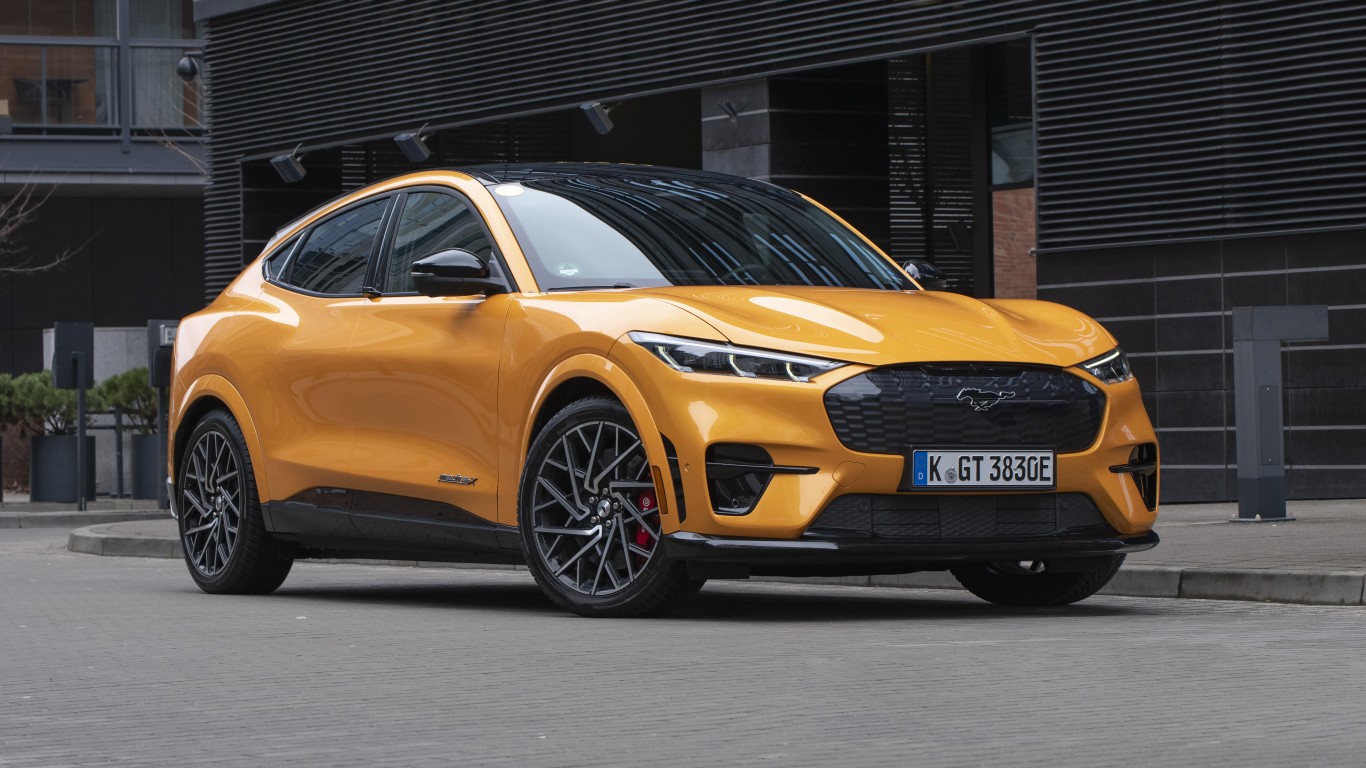
- 2023 sales: 72,608
- Popular models: F-150 Lightning, Mustang Mach-E
- Market share: 5.4%
Coming for Second Place
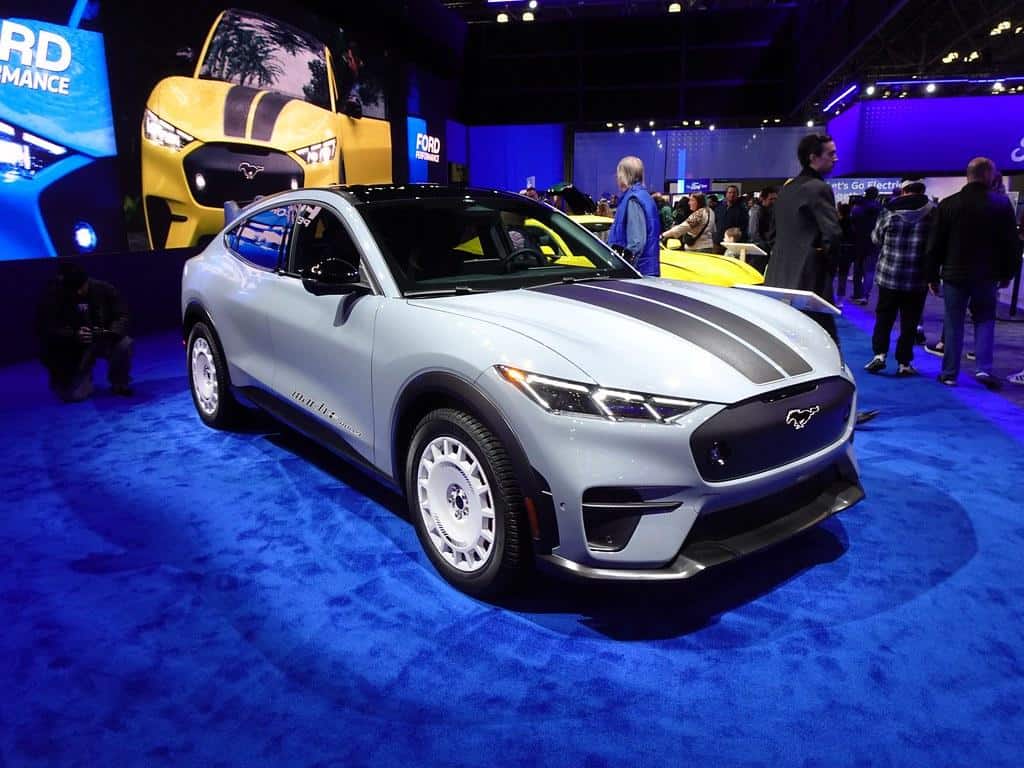
With sales just behind Chevrolets, there is no question that Ford is coming for second place in the EV market. Behind the strength of the Mustang Mach-E and Ford F-150 Lightning, Ford is poised to make up some ground in 2024 with the E-Transit. In June 2024, Ford reported that it had seen a 65% increase in sales of its hybrid and all-electric vehicles, so it very well may pass Chevrolet for second place this year.
3. Chevrolet

- 2023 sales: 75,883
- Popular models: Chevrolet Bolt, Bolt EUV
- Market share: 5.7%
Second Biggest
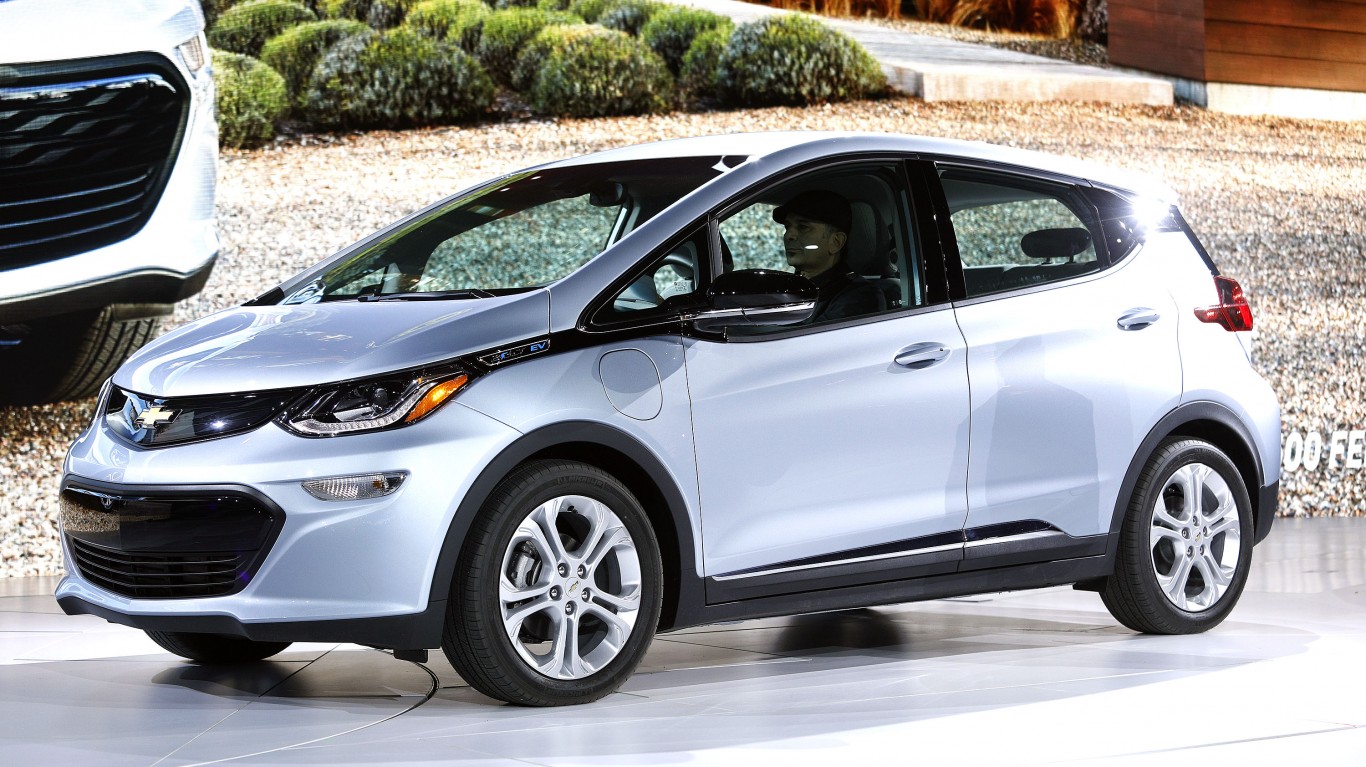
It seems ironic that Chevrolet is happy about being the number two electric brand when its market share is 50% less than that of Tesla. According to reports, Chevrolet’s Bolt and Bolt EUV sales made up the lion’s share of its EV sales in 2023. However, even if you look at all of GM’s sales in 2023, EVs only accounted for 2.9% of all vehicles sold, which is disappointing considering how many Teslas sold during the same period.
2. Other
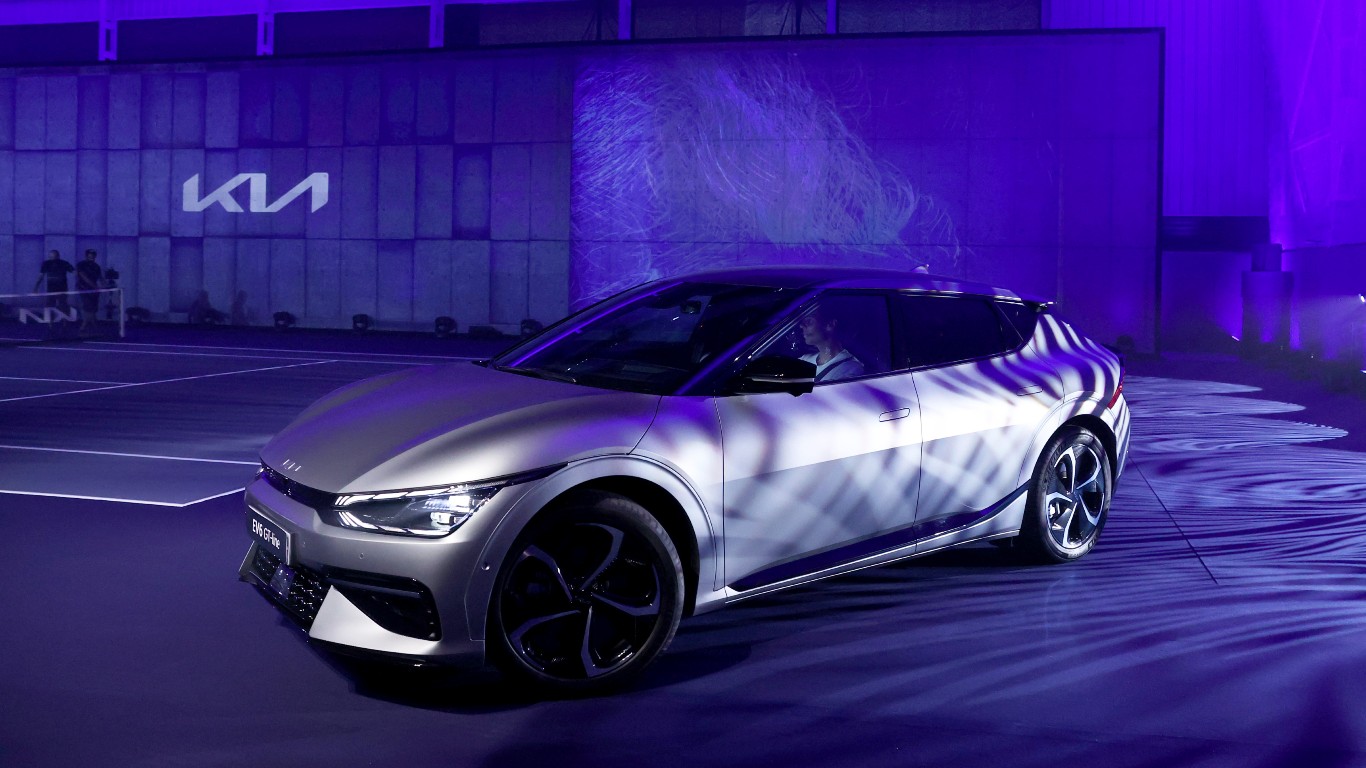
- 2023 sales: TBD
- Popular models: Kia EV6, VW ID.4, Audi E-Tron
- Market share: 16.6%
Second Place
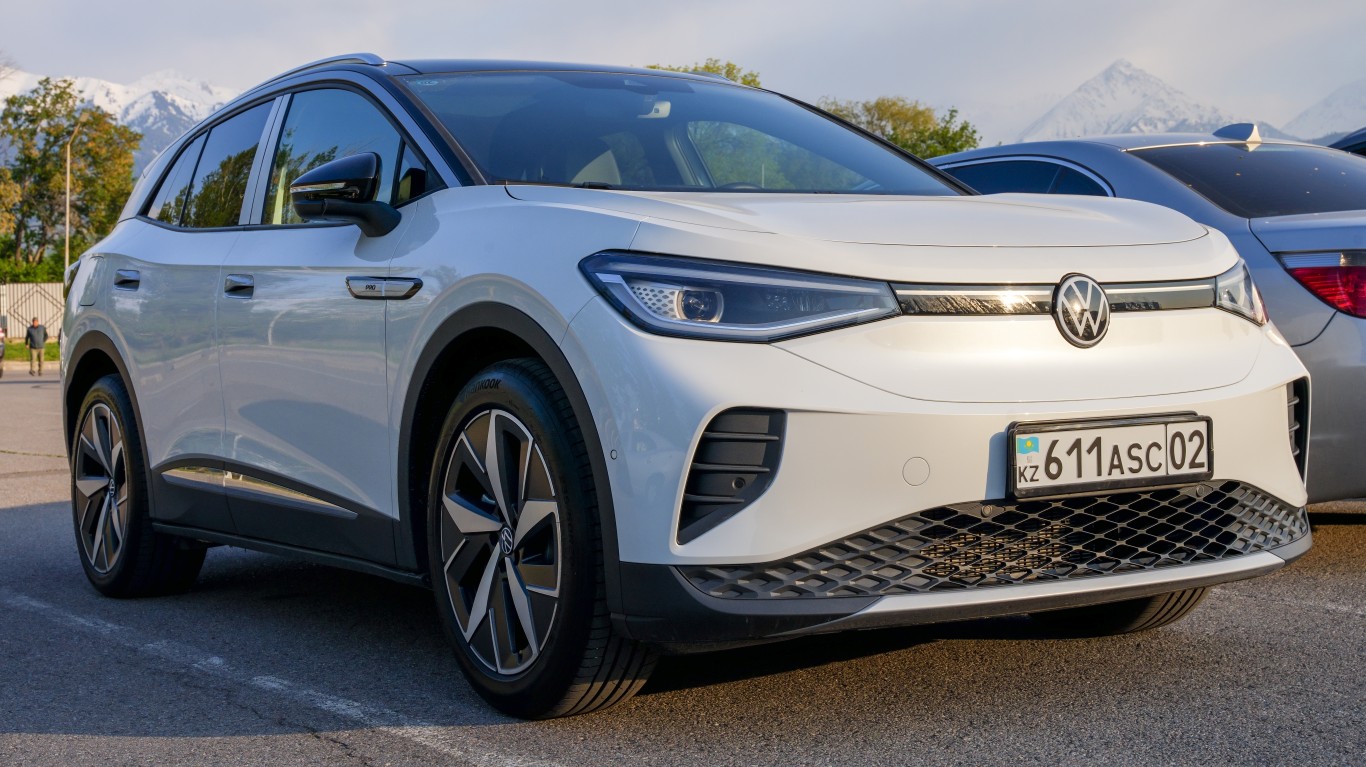
While Chevrolet might be the second biggest brand behind Tesla, it has the third-largest market share behind a combination of “other” electric vehicle brands. In this “other” category, you have brands like Kia, Volkswagen, Nissan, Audi, and Porsche. These brands have yet to make their way onto this list independently, so they must combine their sales to create a ranking. Still, until such a time when they can stand alongside Ford and Chevrolet on their own, they combine to be Tesla’s biggest market share rivals.
1. Tesla
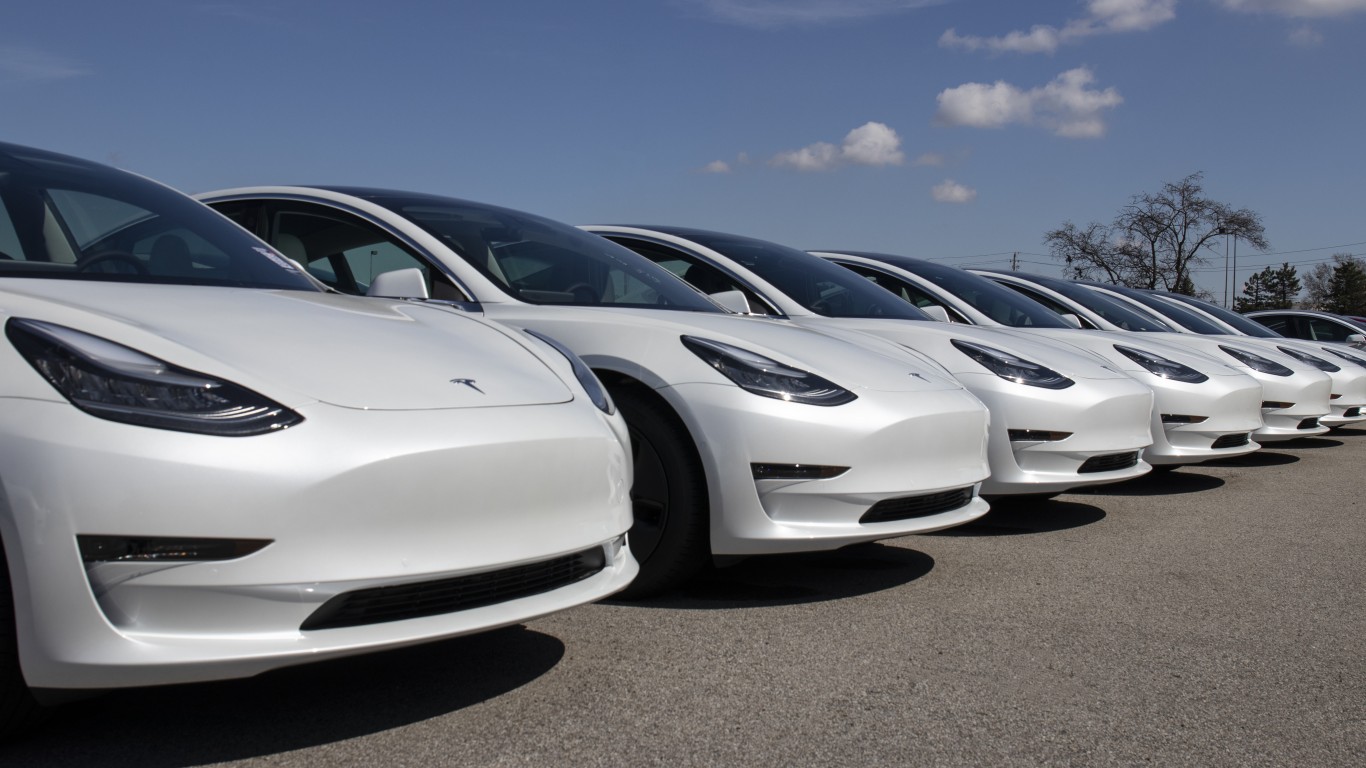
- 2023 sales: 1,808,581
- Popular models: Model Y, Model 3, Model S
- Market share: 56.5%
Tesla Is King
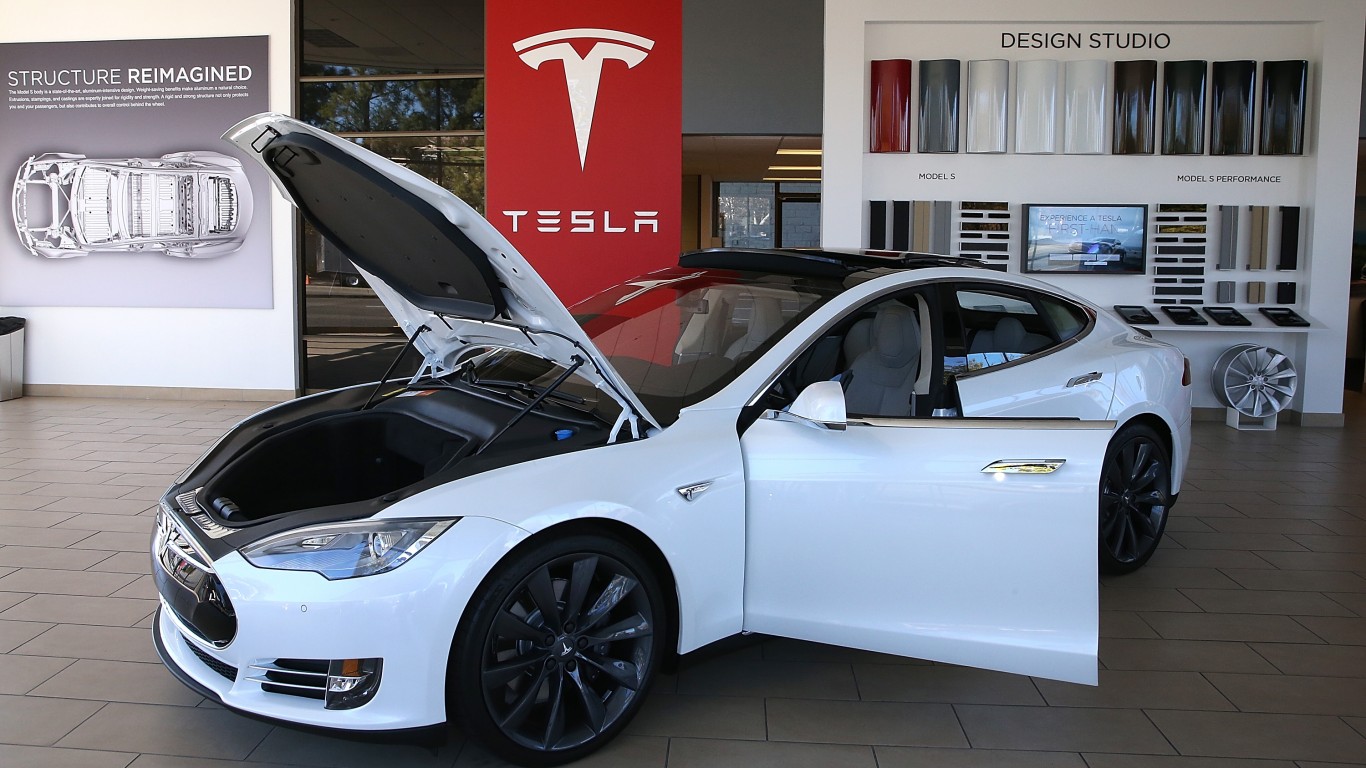
It shouldn’t be surprising to learn that Tesla is the electric vehicle king. The company is the clear EV leader, with over 1.8 million vehicles sold in 2023. While company CEO Elon Musk regularly makes erratic comments about Tesla, this has not seemed to affect its sales. However, the regularity with which auto industry analysts question Tesla’s future inevitably leads to questions about whether it can maintain its lead in the electric vehicle market indefinitely. There is hope the Cybertruck can help Tesla grow its EV market share lead, though initial sales have been less than hopeful. The faithful will buy new Tesla models no matter what, that much is clear.
100 Million Americans Are Missing This Crucial Retirement Tool
The thought of burdening your family with a financial disaster is most Americans’ nightmare. However, recent studies show that over 100 million Americans still don’t have proper life insurance in the event they pass away.
Life insurance can bring peace of mind – ensuring your loved ones are safeguarded against unforeseen expenses and debts. With premiums often lower than expected and a variety of plans tailored to different life stages and health conditions, securing a policy is more accessible than ever.
A quick, no-obligation quote can provide valuable insight into what’s available and what might best suit your family’s needs. Life insurance is a simple step you can take today to help secure peace of mind for your loved ones tomorrow.
Click here to learn how to get a quote in just a few minutes.
Thank you for reading! Have some feedback for us?
Contact the 24/7 Wall St. editorial team.




